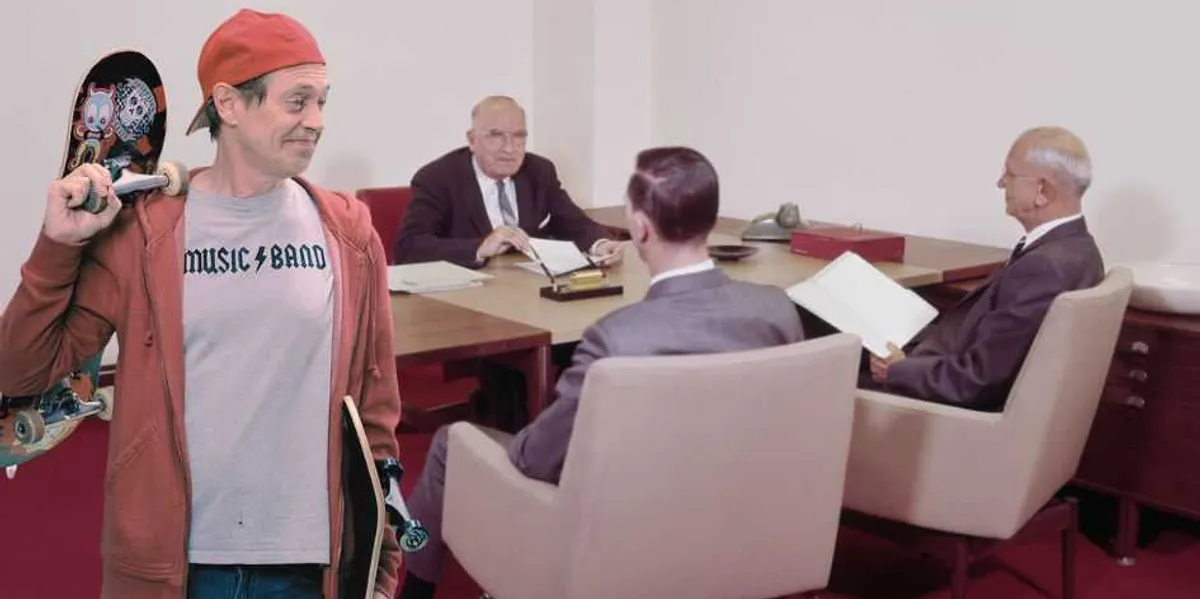This week’s column is meant for anyone younger than 40, which ropes in most Millennials and all of Gen Z and more. But they won’t listen to Olds like me at 51, so maybe you good readers can find a way to slip this into their Ovaltine if they’re your kids or grandkids.
I suppose if I were smart and wanted to market this well to that crowd, I’d call what follows a “guide to adulting.” But I won’t, because using the non-word “adulting” is the kind of kiddie nonsense that young people should have stopped doing before they started doing it.
You’d think this set was raised in a joint custody arrangement between 2 Live Crew and a band of cockney orphans in Dickensian London.
The new 17?
We’re in an era of unprecedented infantilization. Chronological adults are grown-ups in years only; they have the minds of children. No, it’s not “just like it’s always been.” I’m not saying “the same things old people have always said.” There has never been a time in history before the Millennial generation when helpless, unskilled, and babyish behavior was tolerated in adults, let alone culturally praised as it is today.
The average 35-year-old in 2025 has the tastes, habits, and deportment of a 17-year-old from my youth. They bond over cartoon comic book superheroes; they giggle in the corporate office tower over Stanley-brand water cups and clicky acrylic nails like girls used to do in ninth grade in the bathroom.
I’ve had enough.
Let’s get to it.
OK, groomer
Fifteen years ago, I hired 24-year-old “Olga” for a secretarial job at my company. She was great and worked for us for years. But I almost fired her on the first day. She walked into the office wearing a belly-baring crop top and jeans slung so low she might have been modeling for a depilatory cream ad.
“This is not appropriate office wear; this is an outfit for the clubs,” I said as she looked at me shocked. Her mother had never told her that it wasn’t cute to wear provocative clothing to a professional job, because mom was too busy trying to look her daughter’s age.
Prescription for young ladies:
- No excess cleavage — no more than half an inch should be shown, if any.
- Wipe 75% of that makeup off, and absolutely no false eyelashes in broad daylight. That’s an evening look for women of questionable reputation.
- Pry off those acrylic claws and keep your nails no longer than what’s standard for a French manicure. In fact, just do that — the French manicure.
Prescription for young gentlemen:
- No dyeing your hair — not for fun, not to cover gray. Dyed hair on a man gives the impression that he’s unstable or untrustworthy. Do not sass me about this.
- Shave your face, or, if you wear a beard, trim it neatly. You may not do handlebar mustaches or biblical patriarch 4-foot long trailing vines. Honestly.
- Wash your hair. Repeat: Wash your hair.
- No long hair. No, a ponytail will not do. A gentleman’s hair should be short and neat. You may rock a fade, a modified slick ’50s pompadour (my favorite), and similar, but that’s all.
- Buy jeans that fit sufficiently to remain above your butt crack, and tuck your shirt in.
- No jewelry except a wedding ring or a class ring. No, you may not wear “just one diamond stud in my ear.” Do you want to look like a gentleman or a Brooklyn pimp from 1972?
That’s fashion and grooming sorted. Let’s move on to speech.
Talk stupe
If you’ve been alive for 50 years, you’ll notice how different America sounds today. You’ll notice how immature and declassé even newscasters sound now. As a young man, my friends mocked me for my sharp, nasal upstate New York/upper Midwest accent. Sample of me speaking at 17: “Oh my Gad! I’ll have a side seel-id with reeyinch dressing!”
I deliberately cultivated a (then-normal) “newscaster from nowhere” flat American accent, the kind that all professionals of every race and background strove for. It served me well in two ways.
First, my speech no longer made me sound like what I was (a welfare kid from a semi-rural trailer park), removing class-based preconceptions from the minds of people I needed to impress. You can object to that all you want, but it won’t change reality. If you talk like you’re down-market, you will be perceived as down-market.
Consider the widespread fashion among American young people to mimic low-class (and particularly black low-class) pronunciation and mispronunciation. It sounds “street.” It sounds vulgar. It sounds uneducated. Many of them think this is positive. It is not.
Second, since my aim was to communicate clearly and respectfully with my fellow adults, I no longer peppered my speech with up-to-the-minute slang and obscure in-jokes. Today, however, nearly everyone young (and too many older people) seem more focused on broadcasting how “cool” they are to their peers than in expressing their thoughts with elegance and precision.
Remove these from your vocabulary:
- “Super” as a replacement for “very.” In fact, drop “very” as well.
Glottal stop it
Amend incorrect and grating mispronunciations. The worst feature of modern accents are the glottal stops that everyone under 40 is suddenly inserting into words. You’d think this set was raised in a joint custody arrangement between 2 Live Crew and a band of cockney orphans in Dickensian London. If you don’t know what I mean, click here to listen to examples of glottal stops.
In all the following, people are dropping the ‘T’ sound and putting in a glottal stop. It’s nails on a chalkboard. The only kids who did this when I was in school came from ignorant households and were still saying “puh-sketti” at 12 years old.
- Not “buh’in,” but “button.”
- Not “impor’enh”, but “important.” (And never “impore-dent.”)
- Not “kih’en,” but “kitten.”
- Not “moun’uhn,” but “mountain.”
Extra credit: Stop dropping your G’s. You are “swimming,” not “swimmun.” This doesn’t sound “authentic;” it sounds stupid.
RELATED: How not to be socially awkward
Bettman/Getty Images
Missed manners
A trip to any store will convince American adults of a certain age that remedial etiquette lessons are necessary. A great many parents have not instructed their children in the most elementary forms of manners and interpersonal communication.
Prescription:
- Look people in the eye when they speak to you. Stop looking at your phone or at the floor.
- But do not perform the Gen Z stare. If you’re not mentally retarded, you may not goggle at people with a blank expression as if you didn’t know how to respond to the greeting “hello.”
- When someone says, “Hi, how are you,” you must respond. It’s easy. Just mimic the form back to them: “Hi there, I’m great. How are you?”
- When placing a phone call, you identify yourself first. It’s intensely rude to call someone and ask for “Josh” without first saying, “Hi, this is David Smith from Smith Capital. I’m looking for Josh, please?”
- The proper response to “thank you” is “you’re welcome.” It is not “no problem,” and it is never “no worries.”
Whine moms
Extra credit: Work on your pitch and intonation.
It started with the valley girls of the ’80s, but now everyone, man and woman alike, is speaking in what I call “gear-shift tonality.” Recall how a car engine winds up higher and higher as you shift a manual from first gear to second to third, etc. The pitch gets higher and higher until you shift, then it drops back down and starts again.
That’s for manual transmissions, not for human speech. Gear-shift tonality makes even declarative sentences sound like questions. It’s also known as “upspeak.”
Whatever you want to call it, stop doing it. Anyone not in your age set finds it annoying and wearying. It makes you sound child-like, tentative, unsure, or manipulative. Remember, Margaret Thatcher took vocal lessons to lower her speaking register in order to be taken seriously in world politics.
That concludes today’s instruction. Keisha and Valerie, you will stay behind and clean the chalkboards to work off the demerit for chewing gum (open-mouthed too). All remaining pupils may close their desks and take their primers home. Class is dismissed.
Read the full article here











![Black Female Chicago Resident Goes Off on the City’s Scamming Dem Leadership [WATCH] Black Female Chicago Resident Goes Off on the City’s Scamming Dem Leadership [WATCH]](https://www.lifezette.com/wp-content/uploads/2026/01/2026.01.11-08.22-lifezette-6964066dd4a9e.jpg)
